biometrics
Latest
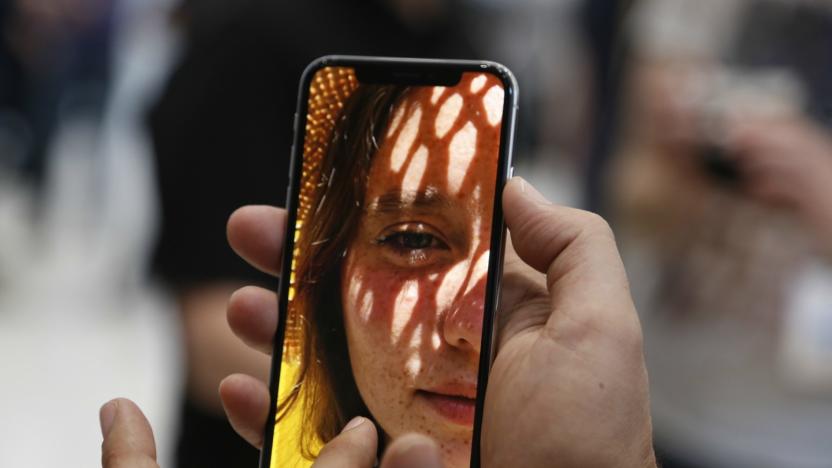
Apple responds to Sen. Al Franken’s Face ID concerns in letter
Apple has responded to Senator Al Franken's concerns over the privacy implications of its Face ID feature, which is set to debut on the iPhone X next month. In his letter to Tim Cook, Franken asked about customer security, third-party access to data (including requests by law enforcement), and whether the tech could recognize a diverse set of faces.

India’s privacy ruling could disrupt its biometric society
A landmark judgement has ruled that Indian citizens have a fundamental right to privacy, despite the country's vast biometric identification scheme. In a case bought forward by opponents of the government's Aadhaar biometric program, Chief Justice J.S Khehar said privacy was "protected as an intrinsic part of Article 21 that protects life and liberty". The unanimous verdict from the nine-judge bench overturns two previous rulings by the Supreme Court which said privacy was not a fundamental right.
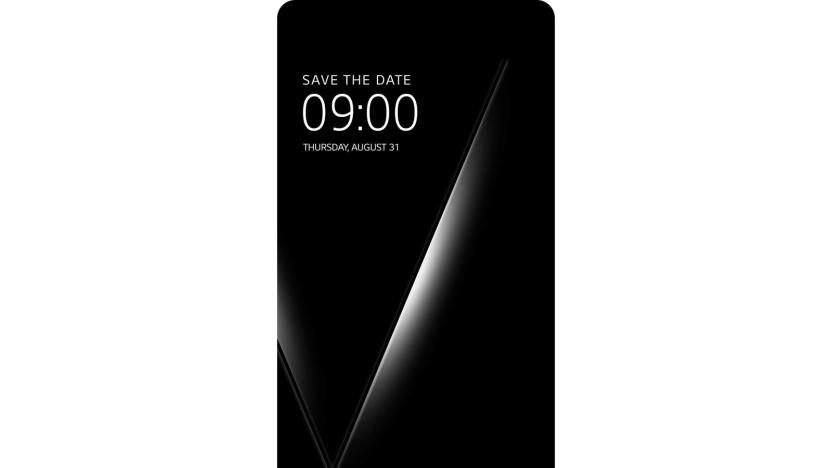
LG's V30 will unlock when it recognizes your face or voice
Until your phone or tablet is set up just the way you want it, a brand new device feels kind of foreign. With the V30, LG is giving you more options for making the phone your own. You can match haptic feedback to the ringtone of your choosing, for starters. Customization applies to security as well, with a handful of ways to make sure you're the only one unlocking your phone. Its face recognition apparently works "instantaneously" without the need to turn the screen on first. More than that, you can set a voice password as well. Biometric security!

Your face might do more than just unlock the new iPhone
Apple's latest secret leak was from its own documentation -- and it's given plenty for developers to chew over. The latest code snippets shared by Guilherme Rambo and Steve Troughton-Smith offer all kinds of tantalising details that may (almost certainly) come with that new iPhone -- whichever model that may be. Not only are there further suggestions that the physical Home button will be ditched, but according to Troughton-Smith, some pointers inside the firmware for Apple's incoming HomePod suggest that a new iPhone could have a screen with a resolution far beyond that found existing models, as well as mentions of facial expression detection.

Your face could be your ticket to fly on JetBlue (updated)
Airports are where hopes and dreams go to die. But JetBlue thinks that one method of how people typically pass the time could be used to speed up the boarding process. For some passengers, a taken-at-the-gate photo will suffice to get them to their sky-chair. It's part of a collaboration between the airline and the US Customs and Border Protection (CBP) office, Jetblue announced today.

The Galaxy S8 iris scanner can be hacked with aging tech
Biometrics are becoming our next de facto security measure, and they're supposed to be a vast improvement on easily-forgotten and hackable passwords. Yet a point-and-shoot camera, laser printer and contact lens is all it took for German hacking group Chaos Computer Club to crack the Samsung Galaxy S8's iris scanner. "By far [the] most expensive part of the iris biometry hack was the purchase of the Galaxy S8," the group wrote on its website. They pulled it off by taking a photo of the target from about five meters away, and printing a close-up of the eye on a laser printer — made by Samsung, no less. A regular contact lens was placed on top of the print to replicate the curve of an eyeball. When the print was held up to the smartphone, the S8 unlocked.

Feds are using Palantir's tech to root out immigrants
Immigration and Customs Enforcement (ICE) has yet another tool from Palantir to track and identify immigrants, according to The Intercept. Dubbed "Investigative Case Management" (ICM), it's a system that aggregates information from the Drug Enforcement Administration and Federal Bureau of Investigation. More than that, it taps into data from the Bureau of Alcohol, Tobacco, Firearms and Explosives too, to provide ICE agents with everything from biometrics, family relationships and phone records on any given person -- citizen or immigrant. These tools aren't necessarily new -- some have been around for a handful of years -- it's just that now, they're being used by the ICE rather than just the Department of Homeland Security.

Facial recognition will replace passports in Australia
Australia has started implementing biometric facial, iris and fingerprint recognition in airports, allowing passengers to go through without showing a passport or even talking to anyone. The "Seamless Traveler" project is aimed at creating a "fast, seamless self-processing experience for up to 90 percent of travelers," so that border control can focus on high-risk passengers. The handy, but invasive-sounding plan would allow international travelers to "literally just walk out like at a domestic airport," security analyst John Coyne told Australia's Sydney Morning Herald.
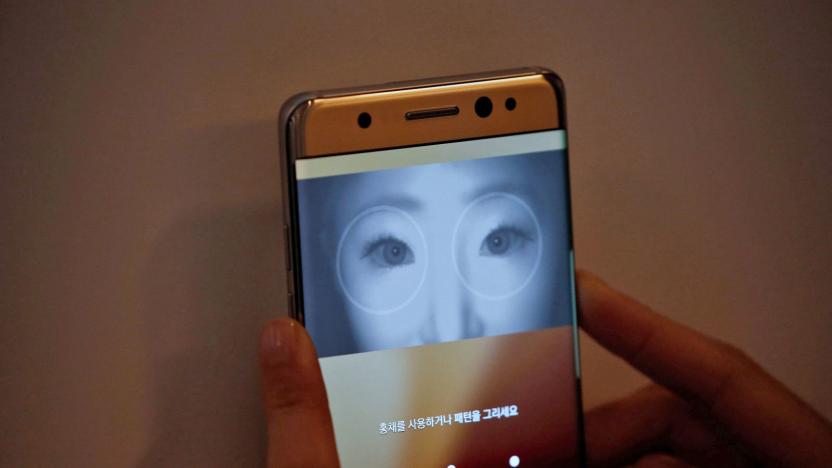
Synaptics combines face and fingerprint recognition on your phone
Fingerprint readers and facial recognition techniques are good for adding a base level of security to your phone without sacrificing convenience. However, they have their limits. It can be hard to switch between methods on a whim, and dedicated intruders can get through if they either make you unlock your phone or develop convincing fakes. Synaptics thinks it has a solution: It's unveiling a "biometric fusion engine" that can combine results from face and fingerprint detection before letting you into a mobile device or PC. Ideally, this makes it easier to sign in even as it adds an extra layer of security.
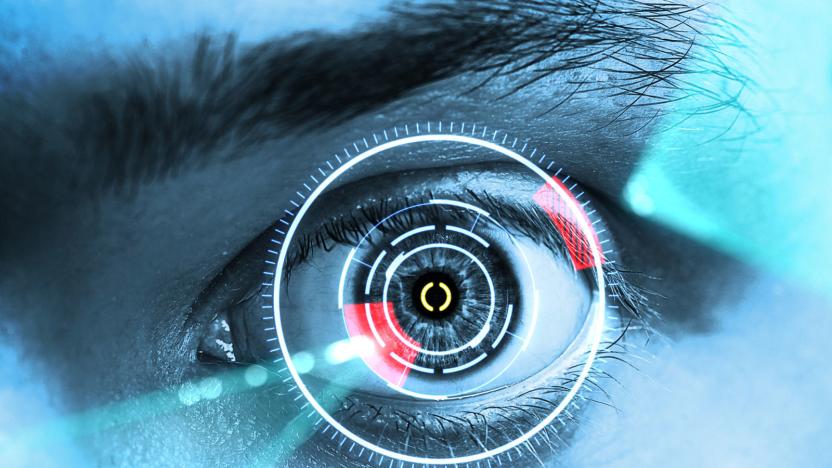
Our fingerprints, eyes and faces will replace passwords
Passwords are a pain in the ass. They're either easy to crack or hard to remember, and when breaches occur you have to come up with a whole new one. So people are trying to do away with passwords altogether, and so far, fingerprint scanners are doing the job nicely.
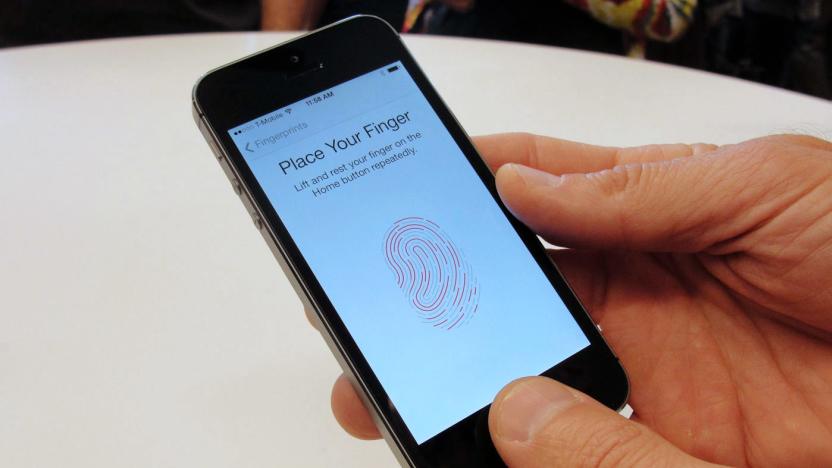
Apple patenting a way to collect iPhone thieves' fingerprints
Apple's done a lot to curb iPhone theft via the "Find my iPhone" feature and encryption that locks out users if an incorrect code or fingerprint is used too often. However, it's thinking about getting more proactive, judging by a recent patent application. It claims a method of "capturing biometric information for identifying unauthorized users," including fingerprints, video or audio. The information could be stored or send to a server, where police could presumably use it to figure out who nabbed your device.

3D faces based on Facebook photos can fool security systems
Facial recognition systems aren't quite perfect yet and can still make mistakes especially when they're assessing the faces of people of color. Now, a team of researchers from the University of North Carolina showed that companies developing security systems based on the tech really do have a lot of work ahead of them. They proved that a number of existing systems can be fooled by the VR-like, computer-rendered faces they created. Further, they made their 3D models, which they showed the security systems on a phone, using only photos taken from social networks like Facebook.

Barclays swaps passwords for voice IDs for telephone banking
Just as fingerprint sensors have made smartphones more useful and secure, voice-authentication tech is making the dreaded call to customer services that bit more convenient. Following TalkTalk and fellow bank HSBC's example, Barclays has also introduced voice identification to its telephone banking service in the UK. No stranger to biometrics, Barclays has been trialing voice recognition among a subset of customers for several years, only now making it available to anyone with a personal account.

An FBI 'pilot' collected over 434,000 iris scans since 2013
Don't freak out, but the FBI has been quietly collecting the iris scans of nearly half a million people in the US -- as part of a "test" program focused on biometric data. According to a confirmation given to The Verge, the San Bernardino Sheriff's Department alone has been collecting an average of nearly 200 iris scans each day from arrestees since the pilot began in 2013.

Log in with your skull via bone conduction biometrics
Researchers looking for a better way to secure their face computers have come up with a novel solution for hands-free, head-mounted password entry. A device could potentially identify its wearer by emitting an ultrasonic hum through their skull and listening for the unique frequency that bounces back.

TalkTalk's customer helpline now uses voice authentication
The days of digging out that grubby Post-it note with your telephone account password scrawled on are over for TalkTalk customers. From today, you'll only need your vocal cords to prove you are who you say you are. That's because TalkTalk has introduced biometric voice authentication on its customer services helpline, in what's said to be the first implementation in the UK outside of the financial industry.

NEC can verify your identity using sound-capturing earbuds
Sure, you could use your fingerprint to unlock your phone, but NEC developed a way to verify your identity with your ears. The corporation announced technology this week that used the way in which sound resonates in the ear canal to identify a person. Ear shape is also unique to each of us, so NEC created a way for microphone-equipped earbuds to measure the acoustics after sending out a sound. What's more, the company says the technology works with 99 percent accuracy and only takes about a second to take its measurements.

MasterCard's selfie security: What could possibly go wrong?
When I read about MasterCard's plan to do selfie security with purchases, I wondered what the first massive breach of biometric data is going to look like. Unlike passwords, biometrics such as face mapping, fingerprints and iris scans can't be changed when a database gets popped. Worse, data sold to marketers or snarfed into an authoritarian database isn't revokable. Manny the cat would not approve. Fortunately, MasterCard isn't going to be replacing the password or pin with selfies, but instead wants to make its "Selfie Pay" app part of a two-step security routine when purchases are made or money is withdrawn. MasterCard says users will be required to blink for the app to demonstrate it's a live image. The company plans to roll it out in the U.S., Canada, the U.K. and a few European countries by this summer.
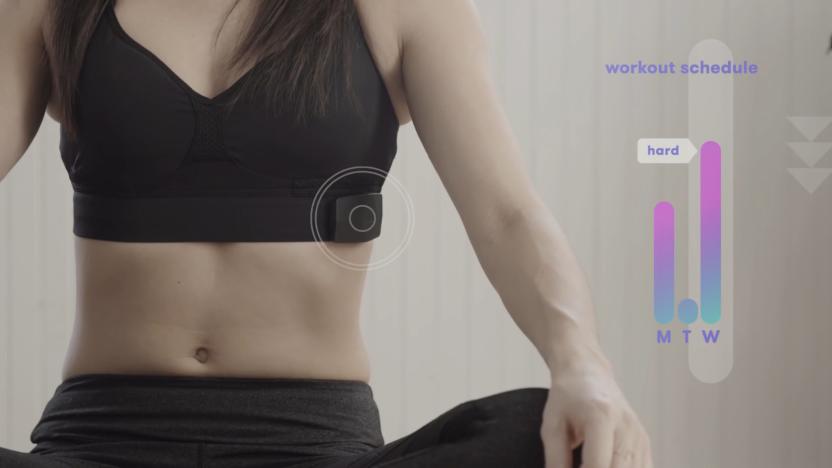
OMsignal's biometric sports bra hits stores this spring
Four years ago, OMsignal set out to make a biometric sports bra -- but a lack of experience in clothing design hampered the company's progress. Eventually, the team released the OMsignal smart shirt, a product that worked, but only served half of the market. That's not a problem anymore: OMsignal just announced the OMbra, a biometric garment designed specifically for women.

WSJ: Citigroup is testing iris-scanning ATMs from Diebold
The Wall Street Journal reports that Citigroup Inc is testing a pair of newfangled ATM formats from Diebold that will scan customers' eyeballs with smart phones rather than require PINs. The first concept, dubbed "Irving", scans their irises instead of having them type in their personal ID number. Diebold estimates that the cash withdrawal process could be shortened to just 10 seconds with this method. The second concept, known as "Janus", is a double-sided ATM that also does away with the card reader. Instead, it can email or text receipts to the user.













